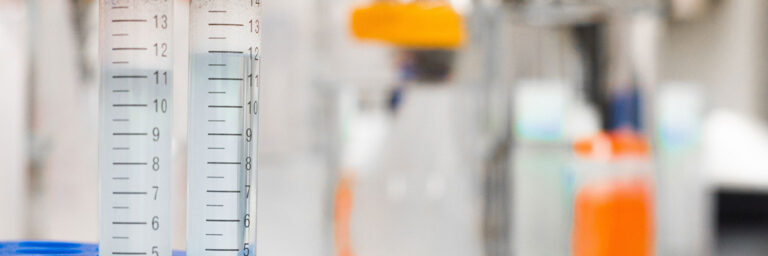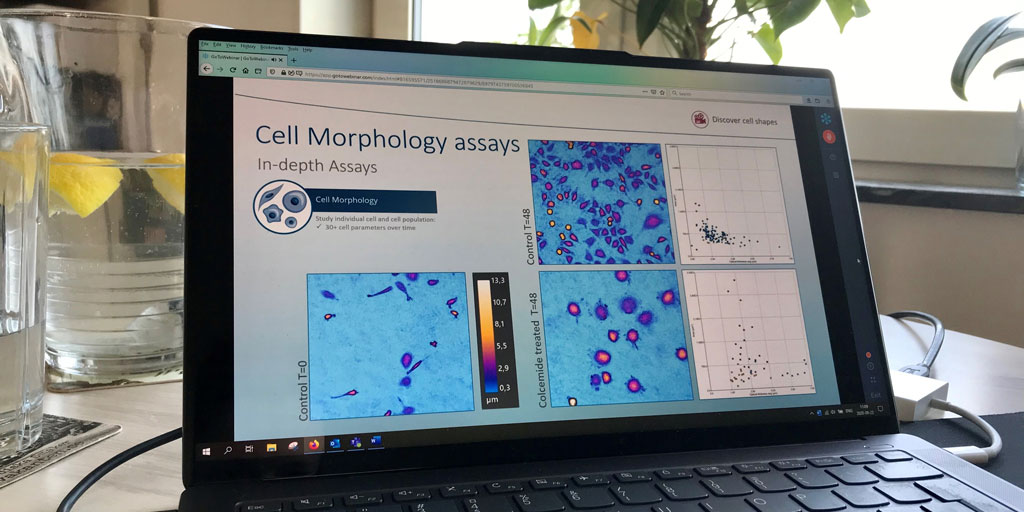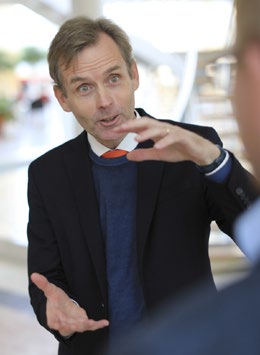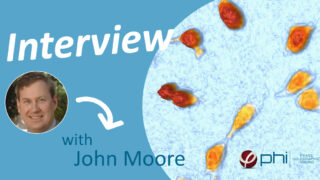Interim Report 1 (2020-05-01 – 2020-07-31)


May 2020 – July 2020
| Net Sales | 131 (594) KSEK |
| Operating result before depreciation (EBITDA) | -4 549 ( -5 270) KSEK |
| Net result | -6 417 (-7 156) KSEK |
| Earnings per share | -0.45 (-0.50) SEK |
In short
- Net sales for the period amounted 131 (594) KSEK.
- The gross margin amounted to -20 (58) %. The negative gross margin is a direct effect of the COVID-19 travel restrictions, as explained below.
- The global COVID-19 restrictions have dramatically affected customers' ability to receive PHI for onsite demonstrations, installations and training, naturally impacting short-term sales.
- However, as reported below, PHI is well prepared for the ongoing transition of the life science industry towards online business models, accelerated by the pandemic.
- On May 4 PHI received a 15 MSEK credit facility to bridge the effects of the COVID-19 pandemic. Together with additional support from the government, it is estimated that PHI’s working capital is secured until 2022.
CEO commentary
Traditionally our customers, cell biologists, do their main work in the laboratory. Not seldom, can you hear a cell biologist say, “I don’t feel like I’m doing any useful work when I’m not working in the lab”. I was therefore delighted when our customer at the University of Bergen was able to complete their research remotely using the HoloMonitor App Suite software on their laptops at home.
A few weeks after their lab closed in March, the reviewers of their now published paper in Scientific Reports came back to them, asking for additional data for the article to be accepted and published by Nature. Fortunately, the wealth of data created by HoloMonitor and the flexibility of the App Suite software allowed the researchers to make additional discoveries that satisfied the reviewers, without leaving home. Read their story in their own words: A LOCKDOWN EXPERIENCE — Research from home.
Undoubtedly, this is the future — automated data collection in the lab, data analysis and report writing from home. The focus shift we did, from hardware to software and data analysis, a few years ago makes us well prepared for this industry transition, accelerated by the pandemic.
3D cell cultures
Now, this is not all. The results themselves are highly interesting for PHI. Cell experiments are usually conducted using so-called 2D cultures, where the cells cling to the bottom of the plastic cell culture container. This is obviously a completely unnatural environment for cells. In our bodies, cells live their lives embedded in a nutrient-rich protein gel.
To improve the clinical relevance of cell culture experiments and ultimately lowering the cost of pharmaceutical development, scientists want to move away from the traditional 2D cultures to 3D cultures in which the cells are embedded in a similar protein gel as in our bodies.
However, imaging and analyzing gel embedded cells has proven to be impractical using conventional microscopy techniques. Unlike a 2D culture, the cells in a 3D culture are located at various depths, making it difficult to record images where all cells are in focus.
Digital lens enables teleworking
In a conventional microscope or an ordinary digital camera, the image is created by a glass lens. As we all have experienced, annoyingly the only way to correct an out of focus, but otherwise perfect image, is to take a new one, which of course never is as good as the first blurry image.
This does not apply to HoloMonitor. With HoloMonitor, it is possible to refocus on each object in the image after the image has been recorded. Unlike a standard digital camera, HoloMonitor does not just create a digital image. HoloMonitor creates the digital image digitally by replacing the conventional glass lens with sophisticated software algorithms, i.e. a digital lens. This capability allowed the Bergen researchers to refocus and analyze cells at different depths in 3D cultures at home on their laptops, long after they carried out the actual experiment in their lab.

The new default way of meeting customers — an online seminar, explaining the benefits of HoloMonitor.
COVID-19
The global COVID-19 restrictions have dramatically affected customers' ability to receive us for onsite demonstrations, installations and customer training, naturally impacting short-term sales. Despite this, several HoloMonitor units have been delivered since the beginning of the fiscal year in May. Most recently to our first customer in the Netherland, Radboud University and to the Israel Institute of Biological Research (IIBR), which on behalf of the Israeli government is leading Israel's effort to develop a COVID-19 vaccine.
Negative gross margin
As a part of the urgent extension of IIBR’s service contract and due to COVID-19 travel restrictions, it was agreed that the two HoloMonitor units at IIBR would be serviced by replacement, instead of onsite service. IIBR is a high-security facility. It remains uncertain whether the replaced units can be shipped back to Sweden, hence the negative gross margin for the period.
An industry in transition
At first, many were skeptical, some very skeptical. But as people increasingly become accustomed to meeting online, they realize how much more efficient it is. The ability and more importantly the general acceptance of meeting face to face digitally will fundamentally change the way business is done within the life science industry.
In the short term, transitions are generally not good for business. However, for those who can adapt unprecedented opportunities are ahead. These are for sure exciting times for an IT-entrepreneur who happened to end up in the IT-wise underdeveloped life science industry. Finally, the life science industry is coming to my world, not the other way around.

Peter Egelberg, CEO
Net sales and result
Net sales for the first quarter amounted to 131 (594) KSEK and operating result before depreciation (EBITDA) to -4 549 (-5 270) KSEK. The net result amounted to -6 417 (-7 156) KSEK.
Investments
With an emphasis on application development to further broaden the scope and efficiency of the company’s products, the company invested 659 (536) KSEK in patents together with product and application development during the period.
Financing
Cash, cash equivalents and unutilized granted credits amounted to 27 137 (33 633) KSEK by the end of the period. The equity ratio was 67 (85) %.
COVID-19
To bridge and adjust to the effects of the COVID-19 pandemic, PHI received a loan facility on May 4, 2020. The loan agreement between PHI and Danish Formue Nord Markedsneutral A/S allows PHI to call for loans totaling 15 MSEK at market terms. Together with additional support from the government, it is estimated that PHI’s working capital is secured until 2022.
Risks
The company may be affected by various factors, described in the 2018/19 Annual Report. These factors may individually or jointly increase risks for the operation and result of the company.
Accounting principles
The accounts are prepared in accordance with the Annual Accounts Act and general advice from the Swedish Accounting Standards Board BFNAR 2012:1 Annual accounts and consolidated accounts (K3).
Review
This interim report has not been subject to review by the company’s auditor.
Statements about the future
Statements concerning the company’s business environment and the future in this report reflect the board of director’s current view of future events and financial developments. Forward-looking statements only express the judgments and assumptions made by the board of directors on the day of the report. These statements have been carefully assessed. However, it is brought to the reader’s attention that these statements are associated with uncertainty, like all statements about the future.
Calendar
October 20 Annual meeting
December 14 Half year report
On behalf of the Board of Directors
Peter Egelberg, CEO
For additional information please contact:
Peter Egelberg
Tel: +46 703 19 42 74
E-mail: ir@phiab.se
Web: www.phiab.com
